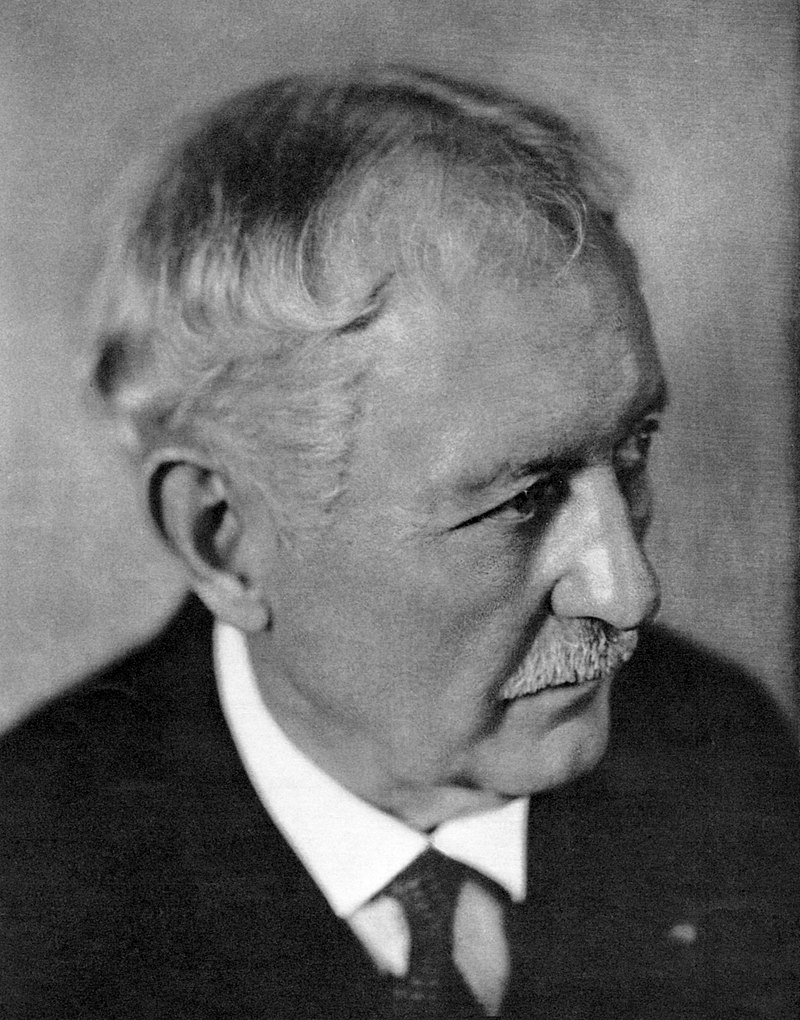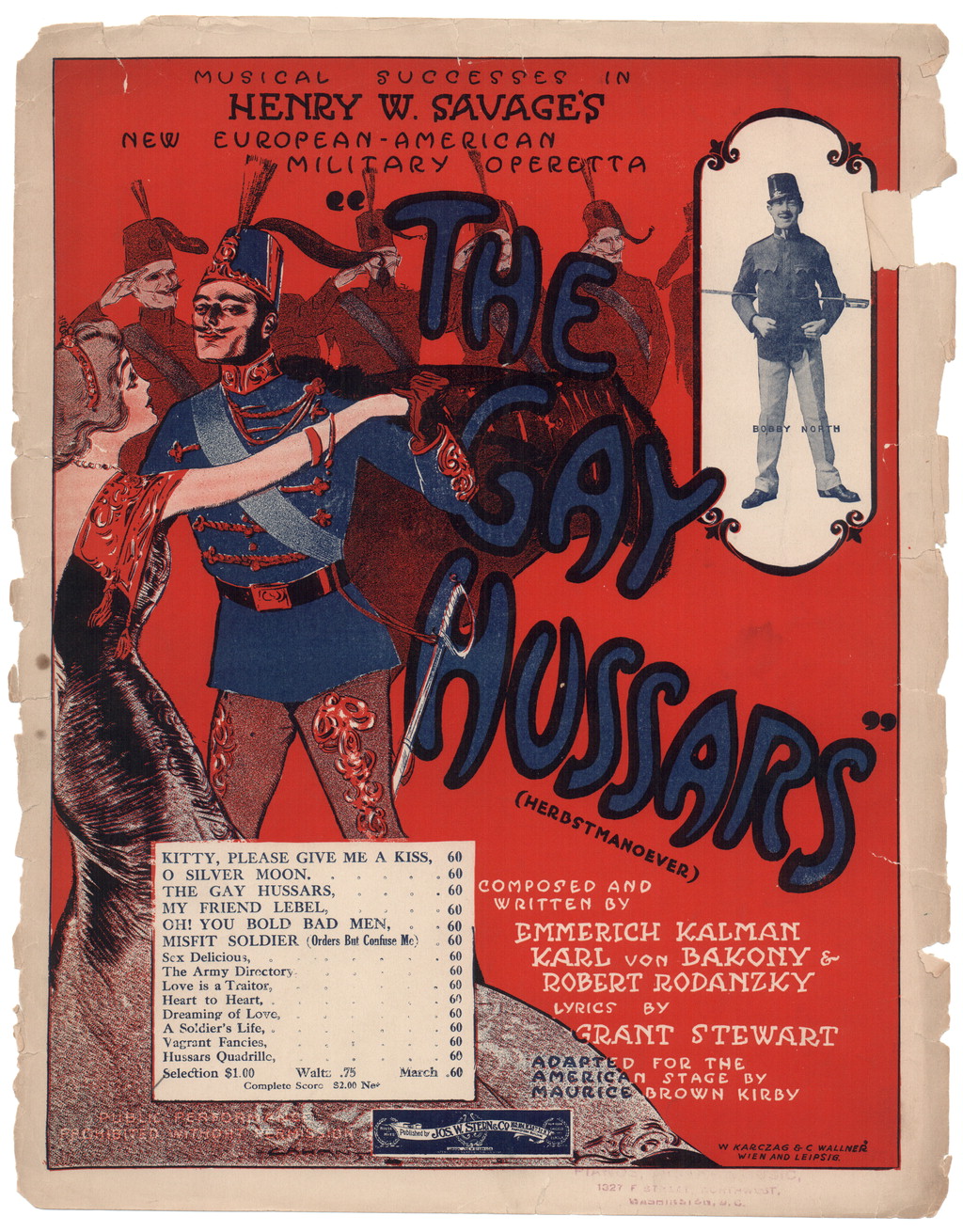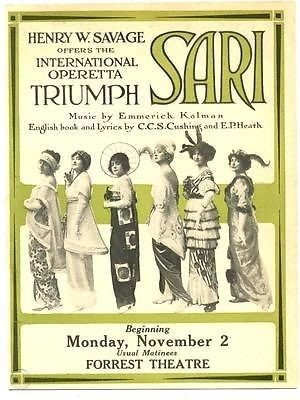Kurt Gänzl
Encylopedia of the Musical Theatre
1 January, 2001
Harvard-educated Henry Wilson Savage was born in New Durham (New Hampshire) on 21 March 1859 and well established as a real-estate operator in Boston when a combination of circumstances led him to switch careers and take over the proprietorship of the failing Castle Square Opera Company, a would-be permanent resident company which played a repertoire of comic and light opera in English. He turned the group’s fortunes around, running one company through two solid years (1896-8) at Philadelphia’s Grand Opera House and installing another at New York’s American Theater (1897) for an extended and highly successful run.

Producer Henry W. Savage in 1925. (Photo: Florence Vandamm / The Theatre Magazine Company)
The company’s repertoire included, on the one hand, operas such as Aida, The Barber of Seville, Rigoletto, Carmen, Il trovatore, Cavalleria rusticana, Romeo and Juliet, The Merry Wives of Windsor, Martha, I Pagliacci, Mignon, La Gioconda, the English-language staples Lurline, Maritana, The Bohemian Girl and The Lily of Killarney and pieces as diverse as Die Meistersinger and Lohengrin or La Fille du régiment and Fra Diavolo. On the other hand, they also performed an interesting mixture of English versions of lighter Continental works (Die Afrikareise, Boccaccio, Der Feldprediger, Der Zigeunerbaron, Nanon, Das Spitzentuch der Königin, La Grande-Duchesse, Les Cloches de Corneville, Les Noces d’Olivette), British comic opera (Dorothy, Billee Taylor, Patience, The Mikado, The Pirates of Penzance, Iolanthe, HMS Pinafore, Paul Jones) and a handful of home-grown pieces including De Koven’s The Fencing Master, Julian Edwards’s Madeleine and Harry B Smith’s burlesque Sinbad. Amongst the company, for varying periods, such musical-theatre artists as young comedians Raymond Hitchcock and Frank Moulan, British tenor Charles J Campbell and sopranos Marie Celeste and Attalie Claire played a sometimes surprising range of rôles.

The souvenir broschure for the “American Extragvaganza” by Harry B. Smith: “Sinbad,or The Maid of Balsora.”
Savage’s success at the American Theatre encouraged him to venture further in the theatre and over the following two decades he introduced to Broadway a number of successful plays (The County Chairman, The College Widow, Madame X etc) and some fine musicals.

Sheet music cover for “King Dodo,” the 1902 hit.
His first musical-comedy venture was Luders and Pixley’s previously shunned King Dodo, for which he made the most effective bid following the team’s success with The Burgomaster, and his subsequent productions included some of the happiest early American comic operas: The Sultan of Sulu (1902), in which he starred his Castle Square comedian Moulan, the highly successful Luders/Pixley The Prince of Pilsen (1903), George Ade’s Peggy from Paris, his successful collaboration with Luders on The Sho-Gun (1904), and The Yankee Consul (1904) starring Savage’s other Castle Square comedy favourite, Raymond Hitchcock. Luders and Pixley’s Woodland (1904), the revusical science-fiction musical The Man from Now (1906) and Reginald De Koven’s Ruritanian The Student King (1906) were less impressive, but Hitchcock’s follow-up to his Yankee Consul success in The Yankee Tourist (1907) did better.

Poster for the 1903 “Prince of Pilsen.”
Savage had his biggest success, however, when in 1907 (now, curiously, calling himself ‘Colonel’ Savage) he introduced The Merry Widow to Broadway.

Donald Brian and Ethel Jackson in the original Broadway production of “The Merry Widow,” 1907. (Photo: Theatre Magazine Company / White Studio)
Its enormous success led him virtually to abandon the American musicals which he had so diligently fostered up to this time, and most of his subsequent productions were imports. Unlike London’s Merry Widow man, George Edwardes, however, he failed to pick the right ones – whilst other producers snapped up Die Dollarprinzessin and Der tapfere Soldat, Savage had mixed fortunes with Edward German’s Tom Jones, Kálmán’s Tatárjárás (The Gay Hussars), a piece fabricated from the scores of Eysler’s Johann der Zweite, Das Glücksschweinchen and Künstlerblut (The Love Cure) which he announced as a second Merry Widow but which, of course, wasn’t and didn’t, and Henri Berény’s Lord Piccolo (Little Boy Blue) which, at least at the time, went much further towards being so, but he notched up a full-sized disaster with the one-week run of Luders and Pixley’s last work, Somewhere Else.

Selection from “The Gay Hussars,” Jos. W. Stern & Co., New York, 1909. (Photo: Library of Congress)
Europe at last gave him a second significant hit when he presented the little Hungarian soubrette Mitzi Hajós in a version of Kálmán’s Der Zigeunerprimás, played on Broadway as Sári (1914), but thereafter success proved harder to find.

Emmerich Kalman’s Viennese hit “Zigeunerprimas” reworked as “Sari” for Broadway, starring Mitzi Hajós in 1914.
Lehár’s Das Fürstenkind (The Maids of Athens), Hugo Felix’s remake of Hungary’s Csibéskirály as Pom-Pom (1916) and the home-grown musicals of Jerome Kern (Have a Heart, Toot-Toot!, Head over Heels with Mitzi Hajós) and Louis Hirsch (See-Saw), and yet a further vehicle for the tenacious Mitzi called Lady Billy (Harold Levey/Zelda Sears) did, at best, adequately and, at worst, very badly, and although he got a six-month run out of a gently feminist piece called The Clinging Vine (1922) by Sears and Levey, a further show The Magic Ring (again with Mitzi) failed.
His final musical production, on which Miss Sears teamed with Vincent Youmans, was Lollipop (1924) a show which allowed the man who had produced so many fine pieces in his early days, and two enormous successes in The Merry Widow and Sári in his middle years, to go out with at least a respectable run.
He died in Boston on 29 November, 1927.

Guten Tag! Wer könnte mir sagen, wo das Buch über Paul Abraham von Karin Meesmann noch bleibt? Was ist geschehen? Ich bin ein warmer Freund von Abrahams Musik (liebe auch die anderen Meister der Operetten in den silbernen Jahren).
Gruss aus Helsinki
von Martti Myllylä
My Grandmother Blanche Curtis (Baldwin) played in Mr. Savage’s play the Merry Widow. She played the part of Olga in 1909 at the Macdonough theater and Margot.
Were any of The Merry Widow shows filmed?
My great-grandmother was in Sari and toured in 1915
My grandfather was Alfred Grasso who worked for Mr. Savage for many years. I have some of his memorabilia from that time period.